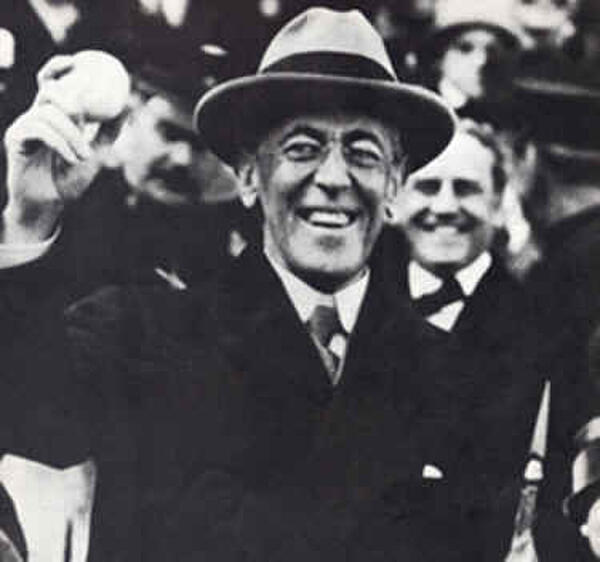Woodrow Wilson
Woodrow Wilson was America’s 28th president and held the post when the Versailles Treaty was signed. Unlike Georges Clemenceau, who was the French representative at the signing, Wilson believed that a moderate approach was needed when punishing Germany for their offences during World War One.
Wilson’s views did, however, reflect those of David Lloyd George, who wanted Germany to remain strong so they could act as a barrier between a strengthening communist Russia and Britain.

Born in 1856, Woodrow Wilson was brought up by a strict Christian minister and educated at Princeton, the University of Virginia and John Hopkins University. He was elected president of Princeton in 1902 but gave up his position in 1910 when he was elected governor of New Jersey for the Democrats. He very quickly made a name for himself thanks to his social reforms and just two years later he won the presidential election.
As president, Wilson was focused on issues such as anti-trust legislation, which ensured the country was one in a fair manner. He also made the decision to remain neutral during the war until 1917, when he was forced to intervene by an attack from a German U-boat that killed 128 American citizens. Despite entering the war, Wilson labelled the country an “associate power” rather than an ally, possibly due to his choice of slogan in the 1916 national election: “He kept us out of war”.
Despite his neutrality, Wilson was present at the peace talks in Versailles and presented a moderate voice during the debate. Although he made it clear that he felt Germany needed to be punished for its actions, he also wanted to ensure that it was the leaders who were punished, rather than the citizens.
Desperate for peace, in January 1918 Wilson issued Fourteen Points as his basis for peace and also floated the idea of a League of Nations, which he saw as the only way of maintaining peace going forward. However, many saw his views as naive and weak, particularly as he was so keen on placing the trust of the world’s future on a League of Nations that he had stated America would not actually join; this attitude had a serious impact on the strength of the forerunner of the United Nations
During 1919, Wilson travelled backwards and forwards across America attempting to sell his idea for a league, but his political career came to an abrupt end when he collapse in September 1919. He remained unwell for the rest of his life, passing away in 1924.
While Wilson’s intentions are largely acknowledged to have been positive, his idealist views were permanently tarnished by his refusal to allow America to join his planned League of Nations. No nation was willing to support his Fourteen Points without his willingness to support them, and as such he failed to make a mark on a political level after making such a decision.
MLA Citation/Reference
"Woodrow Wilson". HistoryLearning.com. 2026. Web.
